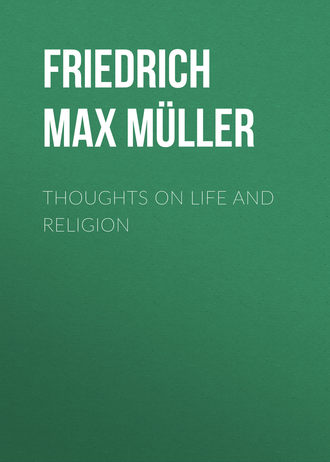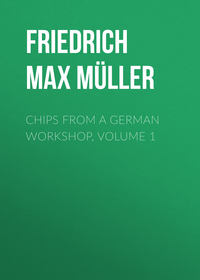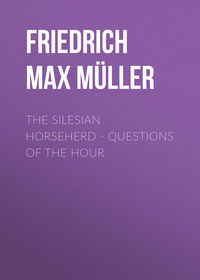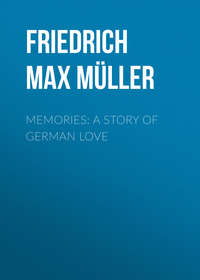 полная версия
полная версияThoughts on Life and Religion
We must learn to see a meaning in everything. No doubt we cannot always see cause and effect, and it is well we cannot. It is quite true that we do not always get our deserts. And yet we must believe that we do—only if we knew it, the whole fabric of the world would be destroyed, there would be neither virtue nor vice in the whole world, nothing but calculation. We should avoid the rails laid down by the world because we should know that the engine would be sure to come and mangle us. In this way the world holds together, and it could not in any other way.
Life.There is to me a beauty and mystery and sanctity about flowers, and when I see them come and go, no one knows whence and whither, I ask what more miracles do we want,—what better, more beautiful, more orderly world could we wish to belong to than that by which we are surrounded and supported on all sides? Where is there a flaw or a fault? Then why should we fear unless the flaws are within us, and we will not see the blessing and the rest which we might enjoy if we only trusted to the Author of all that beauty, order, and wisdom about us. It is a perfect sin not to be happy in this world, and how much of the misery which there is, is the work of men, or could be removed by men, if they would but work together for each others' good.
Life.—–1
The reader is reminded that these lectures were published in 1891, before English theologians had reached any generally received results in the study of the dates of the various parts of the Old Testament. It would be more correct now to substitute 'the Pentateuch' in the above sentence for the 'Old Testament.' For a statement of the modern views of the several periods to which the different books may be assigned, see Canon Driver's Introduction to the Literature of the Old Testament.
2
Westminster.




